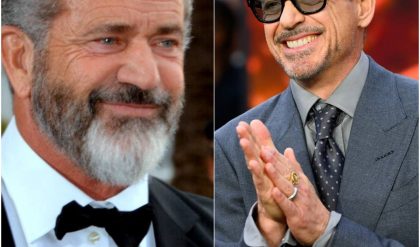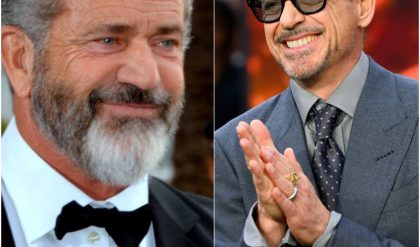In the world of sports, few moments are as emotionally charged as an athlete’s retirement. It’s a time to reflect on their career, celebrate their accomplishments, and bid them a fond farewell. Megan Rapinoe, the soccer sensation known for her unapologetic activism as well as her incredible athletic prowess, recently found herself at the center of such a moment.

However, what should have been a unifying celebration took an unexpected turn as Rapinoe was loudly ‘booed off’ during her retirement game. This surprising response reflects the complexity of Rapinoe’s legacy—one marked by both admiration and controversy.
To comprehend the significance of the booing incident, one must first understand Megan Rapinoe’s career. Her journey from a budding soccer star to a global icon has been nothing short of extraordinary. As a two-time World Cup champion, Olympic gold medalist, and FIFA Player of the Year, Rapinoe’s list of accolades is nothing short of remarkable.
However, it’s her actions beyond the soccer field that have truly set her apart. Rapinoe has used her platform to champion LGBTQ+ rights, racial justice, and gender equality in sports. Her decision to kneel during the national anthem, inspired by Colin Kaepernick’s protest against racial injustice, made her a symbol of courage and change.
Perhaps her most significant off-field contribution has been her role in the U.S. Women’s National Soccer Team’s fight for equal pay. This battle for wage parity became a focal point in the broader conversation about gender inequality in sports and garnered global attention. In the end, it resulted in a groundbreaking settlement.
These accomplishments have solidified Rapinoe’s reputation as a game-changer, not just in sports, but in society at large. She’s a beacon for athletes who seek to effect change and an inspiration for individuals fighting for justice and equality.
Rapinoe’s retirement game was a momentous occasion, drawing fans and supporters from across the country. The stadium was electric with anticipation as she stepped onto the field. The cheers were deafening as fans showed their love and appreciation for an athlete who had given her all for her country and her sport.
But as the game neared its conclusion and Rapinoe was substituted out, the atmosphere took an unexpected turn. Amidst the cheers, there were boos—a loud and dissonant chorus of disapproval. It was a moment that left many puzzled and others deeply divided.
The boos during Rapinoe’s retirement game underscore the complexity of her legacy. To some, she’s a hero—an athlete who used her platform to shine a light on important societal issues, an activist who stood up for the marginalized and the oppressed. Her courage in taking a knee during the national anthem, her advocacy for LGBTQ+ rights, and her fight for equal pay are seen as acts of unwavering commitment to justice.
To others, Rapinoe represents controversy—a figure who allowed politics to encroach upon the purity of sports. Her decision to kneel during the national anthem and her vocal criticisms of the Trump administration were viewed by some as divisive and unpatriotic. Accusations of being ‘anti-American’ have followed her throughout her career.

The retirement game incident brings this divide into sharp relief. While some saw it as an opportunity to celebrate an athlete who had given her all, others seized it as a chance to express their disapproval. It’s a reflection of the wider societal polarization where even sporting events become battlegrounds for political and ideological conflicts.
Megan Rapinoe’s career has been marked by the intersection of sports and activism—a collision that has sparked debates, fueled controversies, and ignited conversations. The booing incident serves as a microcosm of the larger debate surrounding the role of athletes in social and political issues.
For some, athletes should remain apolitical, their primary role being to entertain. For others, athletes have a responsibility to use their platforms to advocate for change and justice. Rapinoe’s legacy embodies the latter perspective—an athlete who refused to stay silent in the face of injustice.
As Megan Rapinoe embarks on her post-retirement journey, the question that looms large is: What lies ahead? She’s hinted at a broader vision, one that extends beyond the boundaries of the soccer field. “I’m so excited to continue to be a part of the growth of women’s sports, not just in soccer,” Rapinoe shared during a press conference.
Her experiences as an athlete and an activist have uniquely positioned her to contribute to the advancement of women in sports and the broader promotion of women’s athletics globally. She aims to establish a better brand for women’s sports, one that transcends what the industry currently offers.
Rapinoe’s journey might have started on the soccer field, but her path forward is poised to be one of even greater impact and influence. Her story serves as a testament to the idea that athletes can be more than just sports figures—they can be agents of change and leaders in their communities.
The boos that accompanied Megan Rapinoe’s retirement from the soccer field are a poignant reflection of the complexities that define her legacy. In an era where athletes are increasingly using their platforms to advocate for change, the line between sports and activism has become blurred. Rapinoe’s story is a testament to the power of individual conviction and the ability of athletes to drive meaningful change.
As she steps into a new chapter of her life, Megan Rapinoe remains an iconic figure—one who inspires passionate admiration and stirs vigorous debate. Whether viewed as a hero or a controversial figure, her impact on the world of sports and society at large is undeniable. The boos may have rung out loud, but they cannot diminish the resonance of her voice or the significance of her actions. Megan Rapinoe will forever be a symbol of courage, change, and the enduring power of one individual to make a difference.





